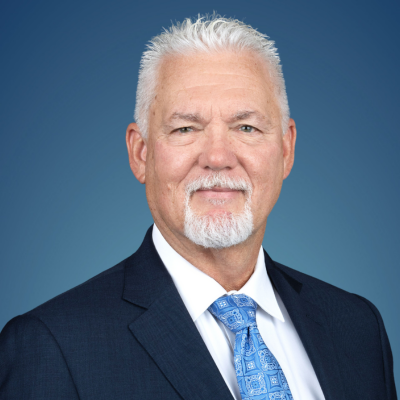The decision to entrust a loved one to the care of a nursing home is not an easy decision. Besides being a large financial move, it also can be hard on your elderly family member or other people in the family. Nursing home negligence is a thought no one wants to consider in times like these; however, it may be necessary to take action if you believe your loved one is in harm’s way.
At Clark, Fountain, La Vista, Littky-Rubin & Whitman, our West Palm Beach nursing home abuse lawyers care for the needs of our clients and will not stand for negligence or neglect of the elderly. We hold nursing homes and other elder care facilities responsible for abuse of the elderly, whatever form that might take, such as neglect, physical abuse, financial abuse, bedsores, and malnutrition.
Nursing Home Abuse & Neglect: The Risks of Unqualified and Insufficient Staffing
Families face difficult decisions when it comes to choosing a nursing home or facility that will provide care and support for their loved ones. To aid them in the process, families often rely on resources like in-person consultations with nursing home staff, facility tours, online reviews, and online tools, such as the Five-Star Quality Rating System for Medicare and Medicaid centers.
Unfortunately, recent studies show that even government-run rating systems can fall victim to manipulation. These reports show an alarming number of nursing homes in the U.S. over-report data about their staff as a tactic to game Medicare’s find-and-compare rating system and earn higher ratings.
You deserve seasoned litigation that cares about you and your life—call 561-899-2100 for a free case consultation!
The problem stemmed from Medicare’s old data-collection system, now updated after reports of inaccurate data were discovered, which allowed nursing home care providers to submit unverified staffing reports and numbers. The result? Many nursing homes earned top ratings even when they had serious staffing concerns at their facilities.
These problems included a general underreporting of staff, gaps in the numbers of aides available (particularly during night shifts and weekend shifts), and even gaps in the numbers of licensed nurses on duty. In fact, one of the highest-rated nursing homes reviewed in the analysis showed that at its lowest staffing points (nights and weekends), the facility had a 20:1 staff to resident ratio.
How Staffing Issues at Nursing Homes Increase Injury Risks
The analysis has prompted great concern among federal regulators, who recently revamped Medicare’s rating system to account for the new federal data. It is also helping the public understand the important role nursing home staff play in the day-to-day lives of residents, and how negligent facilities, which fail to ensure adequate and properly trained staff, can place residents at risk of suffering preventable injuries.
While inadequate staffing can adversely affect the quality of care in nursing homes in many ways, there are several important concerns when it comes to insufficient staffing and nursing home injuries:
- Neglect – Low staffing rates, including gaps in the number of available staff on duty during nights and weekends, can increase the likelihood of neglect. When there is not enough people, staff may become burdened with numerous tasks, causing them to focus less on the needs of residents, including basic needs for food and water, personal hygiene, and repositioning. When neglect persists, residents can suffer serious harm, including infections and bedsores. Unqualified and improperly trained aides are also less likely to address the many needs of elderly residents or provide the level of care they require.
- Substandard medical care – A lack of staff and a lack of qualified nurses on duty can subject residents to substandard medical care. While nursing homes have an obligation to provide the tailored medical care residents need, overburdened staff may forget essential medical treatment, including medications, repositioning, physical therapy and medical monitoring. Insufficient staffing may also cause untrained aids to administer medical care that should be performed by licensed professionals. In the most serious cases, improperly trained or supervised staff can make mistakes that commonly form the basis of medical malpractice cases, such as medication errors.
- Delays and emergencies – Nursing home residents are often in vulnerable states of health, making sudden accidents and medical emergencies more likely. Without sufficient or properly trained staff on duty, the risks for delays and errors in addressing an emergency, whether it is a medical emergency, fall, or another accident, can increase significantly.
- Abuse and exploitation – Overburdened aides and nurses are more likely to suffer from work-related stress, fatigue, and other factors that may make them more likely to abuse or mistreat residents physically or emotionally. Additionally, busy staff working to make up for poor staffing rates are less likely to spot potential warning signs of abuse and neglect, whether committed by fellow staff members or residents themselves. Failures to perform background checks, ensure qualifications upon hiring, and appropriately supervising and disciplining staff can also increase risks for abuse and financial exploitation.
Types of Nursing Home Abuse
Nursing home abuse comes in many forms. You may be able to tell if your loved one is undergoing physical abuse, but other forms of abuse may be harder to spot.
Nursing home abuse may take any of these forms:
- Physical Abuse: This can include hitting, shoving, or inappropriate restraint use.
- Emotional Abuse: this can include ridicule, humiliation, neglect, or terrorization.
- Sexual Abuse: this can include tricking or coercing an elder into sexual contact.
- Financial Abuse: this can include getting important financial information from the elder.
If you believe your loved one may be suffering from a form of nursing home abuse, look for unexplained injuries, restraint marks on wrists, sudden loss of weight, messy living conditions, poor hygiene, or unexplained withdrawals from bank accounts. When you suspect something, turn to the West Palm Beach nursing home abuse attorneys at Clark Fountain.
Nursing Homes in West Palm Beach
Due to the large aging community in the West Palm Beach area, there are a number of nursing home and eldercare facilities. This list is not extensive and does not necessarily indicate nursing homes that have been the subject of litigation. Some nursing homes in West Palm Beach include Darcy Hall of Life Care, MorseLife Health System, Lourdes Noreen McKeen, Manorcare Health Services, Lakeside Health Center, Joy of Living Care Services, Savannah Court Assisted Living Community, Fountainview, and Brookdale. Any nursing home or elder care facility that mistreats or neglects its residents can potentially be held legally liable for their conduct, so contact us today if you suspect abuse.
You deserve seasoned litigation that cares about you and your life—call 561-899-2100 for a free case consultation!
Talk to Clark Fountain Today. We Fight for You.
Some victims of elderly abuse are simply unable to communicate that they are being treated poorly. If you find this is the case, don’t hesitate to contact attorneys at Clark Fountain. Our West Palm Beach elder abuse attorneys care deeply about you and your loved ones and can aggressively represent your claims.
For a complimentary initial consultation, call us today at 561-899-2100!


